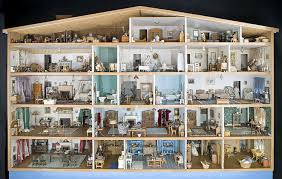When I grow up I will do a budget
When I was a little girl money seemed so easy to be in relationship with. Perhaps because the only money I ever had was the one that jingled in my pocket and my pool of funds never ran empty. As the hand stretched out so the coins poured into it. My needs and wants were so minuscule; a barby doll here, a sticker book there, a bit of candy in between and BAMM I had rocketed all the way to the top of Maslow’s hierarchy of needs. Self-actualization at the age of 5. My Toddler- Diva lifestyle led me to believe that I was fluent in the language of money. I watched my parents as they drew many lines on paper using a ruler to make sure they were straight. I knew it was serious business. They looked pensive and somewhat perplexed, I shrugged and carried on sifting through my goodies which I was growing increasingly bored with. While they murmured and muttered between themselves I picked up the words; budget and balancing and “hazvizi kubhalansa”, that is colloquial Shona for “it is not balancing”. “What is not balancing?” I asked myself as my mind wondered to images of the circus trapeze acts. Perhaps they are planning a circus act? If that’s the case, I decided I wanted in. When I grow up I will do a budget and my balancing act will be a success.
Little did I know my dear parents were not planning a circus act, they were steadfastly trying to sustain us. It is only when I had to go out into the world on my own, that I realized what money was about.
 My relationship with money was far from the romantic fantasy I carried in my mind for so long. It was hard knowing, I had to give to receive. The hardest part was knowing, that though I once sat on the throne of self-actualization adorned with plastic tiaras and plastic jewels, I spent most of my life not knowing what self-actualization even means and here I stand so far from it; aspiring to achieve the physiological needs.” When I grow up I will do a budget” I once told myself “and my act will balance”. Yet here I am falling so short and so far in debt. My journey has made me wonder whether the model needs to be readdressed. The most common African model is one in which parents work and earn money, cover bills and children go to school and spend the money while they await their turn to work and earn money.
My relationship with money was far from the romantic fantasy I carried in my mind for so long. It was hard knowing, I had to give to receive. The hardest part was knowing, that though I once sat on the throne of self-actualization adorned with plastic tiaras and plastic jewels, I spent most of my life not knowing what self-actualization even means and here I stand so far from it; aspiring to achieve the physiological needs.” When I grow up I will do a budget” I once told myself “and my act will balance”. Yet here I am falling so short and so far in debt. My journey has made me wonder whether the model needs to be readdressed. The most common African model is one in which parents work and earn money, cover bills and children go to school and spend the money while they await their turn to work and earn money.
Money is seldom discussed in the home except in possible arguments between spouses, in which children dare not way in. The most a family will discuss money is when the child ask for some and either gets a yes or a no. If the family has a family business the most, the kids know is what the family business retails or what service it provides. Until children are much older they are not involved. I put it to the world that there is a need to make dialogue concerning money as prominent in our homes as our need is to spend it. Let us teach our children where money comes from, and where the money they get from us comes from. Let us teach them the concept of working for money and let us also teach them delayed gratification. All this so that they are equipped to handle the challenges of getting started in life on their own. Budgets can be done with sweets. Business traits taught using sticks. It’s never too early but I believe it is possible for it to be too late.
